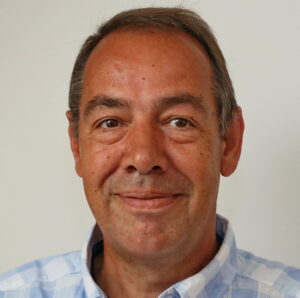

Insects as Food and Feed: Delivering insect proteins in the UK
31 October @ 09:30 – 16:30
Thursday 31 October, 09:30 – 16:30
Thinktank Museum, Birmingham

We are delighted to welcome back our annual Insects as Food and Feed (IAFF) conference, taking place this October in Birmingham.
The Royal Entomological Society’s Food and Feed Special Interest Group (SIG), in partnership with Michelmores, brings together a diverse range of people from across the industry including scientists, farmers, food technologists, lawyers and chefs to examine the vast range of possibilities offered by insects as a novel source of protein. This year’s event will also have input from our Welfare & Ethics and Rearing SIGs.
At IAFF24 you will hear the latest information and take part in discussions that outline new developments and challenges that face the IAFF sector. This year the event will examine updates in legislation and policy changes, the continued development of the insect farming industry, approaches to insect welfare and the ethics of insect farming, plus marketing and public acceptance of insect based or insect feed food products. There will be three topic-led sessions of talks each one followed by a panel discussion.
Key topics include, but are not limited to:
- Integrating insect protein as part of our food and feed systems.
- Where are we now? Insect production and supply chains across Europe.
- How can understanding developments in invertebrate welfare help insect farmers in the UK?
Alongside the traditional conference, we are excited to be running a public panel debate the evening before, introducing using insects as food and feed, and looking at the challenges and opportunities faced as this becomes more widely considered. The discussion will be chaired by BBC journalist, Melanie Abbott. Melanie is a BBC Radio 4 journalist with You and Yours, Woman’s Hour and Farming Weekly.
You can find out more about the debate and register here.
In Partnership with Michelmores: The Michelmores Sustainable Agriculture practice is dedicated to working with businesses whose technologies and practices are tackling the most pressing issues facing the agriculture sector: climate change and biodiversity loss.


Keynote speakers
We are delighted to welcome the following keynote speakers. Additional speakers will be announced soon.
Teun Veldkamp
Wageningen Livestock Research

Teun Veldkamp is senior researcher animal nutrition / insects as feed in the Animal Nutrition department of Wageningen Livestock Research. Dr. Veldkamp joined Wageningen Livestock Research in 1989. In 2002 he obtained his Ph.D. on the thesis “Heat stress and diet utilization in male turkeys – The role of dietary energy and amino acids”. Formerly he was involved in poultry nutrition research in broilers, laying hens and turkeys. Main research topics in poultry nutrition were feed evaluation, amino acid requirements, feed additives: efficacy and tolerance trials for registration purposes. Since 2012 Dr. Veldkamp is most involved in (inter)national projects related to insects as feed, food and non-food. In these projects he is focusing on biowaste conversion by use of insects, insect rearing, and application of insect-derived products in animal nutrition. Dr. Veldkamp is coordinator of the H2020 project SUSINCHAIN (Sustainable Insect Chain) and is the former president of the Study Commission Insects of the European Federation of Animal Science (2016-2022). From June 5, 2024 he is President of the Academic Society for Insects as Food and Feed. He is member of the editorial board of the Journal of Insects as Food and Feed and member of the Management Board of the Journal ‘Animal’.

Abstract submission
We welcome abstracts across all the topics listed above and others that are relevant to the main themes of the conference. We are accepting abstracts for both in-person and online talks and in-person posters.
Abstract submission deadline: 17:00 (BST), Monday 16 September

Registration
Registration is now open at the bottom of this page. Please note there are discounted rates for members of the RES, so if you are not a member already, consider joining today!
To access discounted member rates, you must be logged into your account before registering.
Earlybird registration deadline: 17:00 (BST), Monday 30 September
| In-person | |
|---|---|
| RES Student Member | £25 |
| RES Member | £45 |
| Non-Member | £100 |
| Online | |
|---|---|
| RES Student Member | £10 |
| RES Member | £20 |
| Non-Member | £70 |
Standard registration deadline: 17:00 (BST), Wednesday 16 October
| In-person | |
|---|---|
| RES Student Member | £40 |
| RES Member | £70 |
| Non-Member | £170 |
| Online | |
|---|---|
| RES Student Member | £15 |
| RES Member | £35 |
| Non-Member | £120 |

Survey
We would like to hear from those working across the industries involved and interested in using insects as food and feed about the role of the RES Food and Feed Special Interest Group (SIG) and the IAFF conference, so this can be considered when planning future activities.
This is a very short survey and should take no more than 10 minutes of your time. We would be very grateful for your comments and feedback.

Conference convenors
- Peter Smithers (Food & Feed SIG)
- Mark Ramsden, ADAS (Food & Feed SIG)
- Eleanor Drinkwater, Writtle University College (Welfare & Ethics SIG)
- Gary Needham (Rearing SIG)

Location
Thinktank Museum, Event Suite
Millennium Point
Curzon Street
Birmingham
B4 7XG
